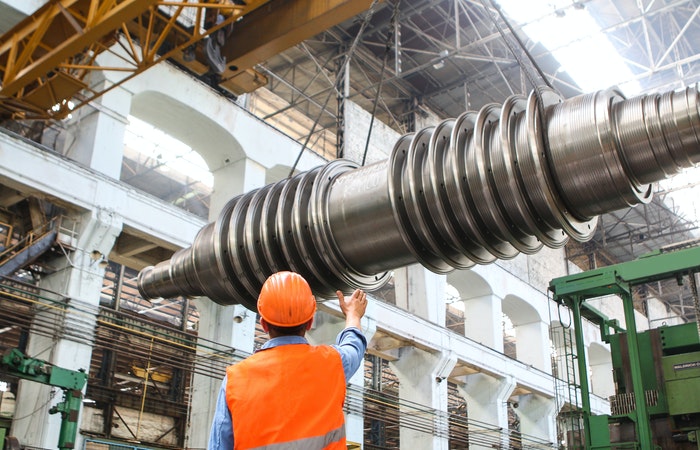Contents
Artificial Intelligence (AI) and Machine Learning (ML) are benefitting tons of fields and the manufacturing industry is on the brink of profound change. AI and ML in the manufacturing industry are bringing new challenges and opportunities for those ready to seize them. The US manufacturing sector which includes the automobile manufacturing industry, machinery manufacturing industry, pharma manufacturing industry, food & beverage, paint & coating manufacturing industry, and much more, is a humongous sector that employs about 13 million workers. Manufacturing companies are constantly looking for solutions to bring down labor costs and reduce downtime to increase workforce productivity and overall production speed and this is where AI comes in. In this digital era, with the advancement of technologies like AI and ML in the manufacturing industry, it certainly makes sense why the manufacturing industry is one of the main industries that use these technologies to their fullest potential. Here are a few ways in which AI and ML benefit the manufacturing industry.
Smart manufacturing
Today’s manufacturers are looking for ways to combine emerging technologies with asset tracking, accuracy, supply chain visibility, and inventory optimization and this is where AI and ML in the manufacturing industry shine their best. Smart manufacturing is a concept that combines the industrial Internet of Things (IoT) and AI. According to a report by Global Market Insights, global machine learning in manufacturing is going to grow from $1 billion in 2018 to $16 billion by 2025. By combining AI and ML tools with the Internet of Things, manufacturing companies can take a deeper look into their logistics, inventory, assets, and supply chain management. This brings valuable insights that uncover huge opportunities for overall process improvement.
Read our article on: Is the Manufacturing sector recovering from COVID-19 impact?
Improved product development process
This is one of the main areas where AI and ML benefit the manufacturing industry. The vast amount of data generated by consumers has brought big opportunities for manufacturing companies in terms of product development. With the help of AI, manufacturing companies can better understand their customers, meet their demands, and satisfy their needs. By gathering consumer data with the help of ML solutions, manufacturers can develop a product with increased customer value and minimize the risks connected to the introduction of a new product to the market. The actionable insight is also taken into account while planning, strategizing, and modeling the product, thus AI in the manufacturing industry helps in strengthening the decision-making process too. This way, manufacturers can reduce the risks associated with the development of new products.
Enhanced quality control
Quality control is an important part of any manufacturing process. A good and accurate quality control procedure defines the success of the product and in turn the growth of the company. Machine learning algorithms can be employed in manufacturing plants to improve the quality of the final product. It does a thorough examination of the manufactured products and finds the anomalies in products and their packaging. Employing ML for anomaly detection in manufacturing plants can improve the efficacy quality control up to 90%( https://www.mckinsey.com/~/media/McKinsey/Industries/Semiconductors/Our%20Insights/Smartening%20up%20with%20artificial%20intelligence/Smartening-up-with-artificial-intelligence.ashx). Moreover, AI and ML in the manufacturing industry can also enhance the quality of the manufacturing process by analyzing the availability and performance of the equipment used in the manufacturing process.
Seamless predictive maintenance
Being a very crucial part of every production and manufacturing operation, maintenance of equipment is one of the biggest expenses in the manufacturing industry. Not only do maintenance works pile up expenses but also bring unplanned downtimes that cost manufacturing plants and factories nearly $50 billion. This is exactly where AI and ML can help the manufacturing industry. Complex AI algorithms like neural networks and machine Learning can generate accurate predictions regarding the status of assets and machinery, thus forecasting equipment breakdowns before they occur. This means, manufacturing companies can predict and schedule the maintenance of equipment without facing the problem of unplanned downtime. Thus, with the help of AI and ML in the manufacturing industry, technicians will know beforehand, if something needs to be repaired or replaced and will even know which methods to use and fix the issue.
There is no doubt that AI and ML in the manufacturing industry cut downtime and ensure high-quality end products. Only those manufacturing companies that apply AI-based solutions for improving work efficiency will survive in this highly competitive industry. With more than 15 years of deep manufacturing industry expertise, we combine our manufacturing and technology knowledge with the latest industry trends to apply innovation, transformation, and digitization to enable superior growth, differentiation, and unsurpassed operating performance. We help global manufacturing companies with mergers & acquisitions, optimizing plant operations, creating solutions for RPA and supply chain optimization, digital engineering, and manufacturing, artificial intelligence, and data-driven analytics. We have dedicated partnerships across the globe and are committed to driving positive change through the world’s largest manufacturing companies.

